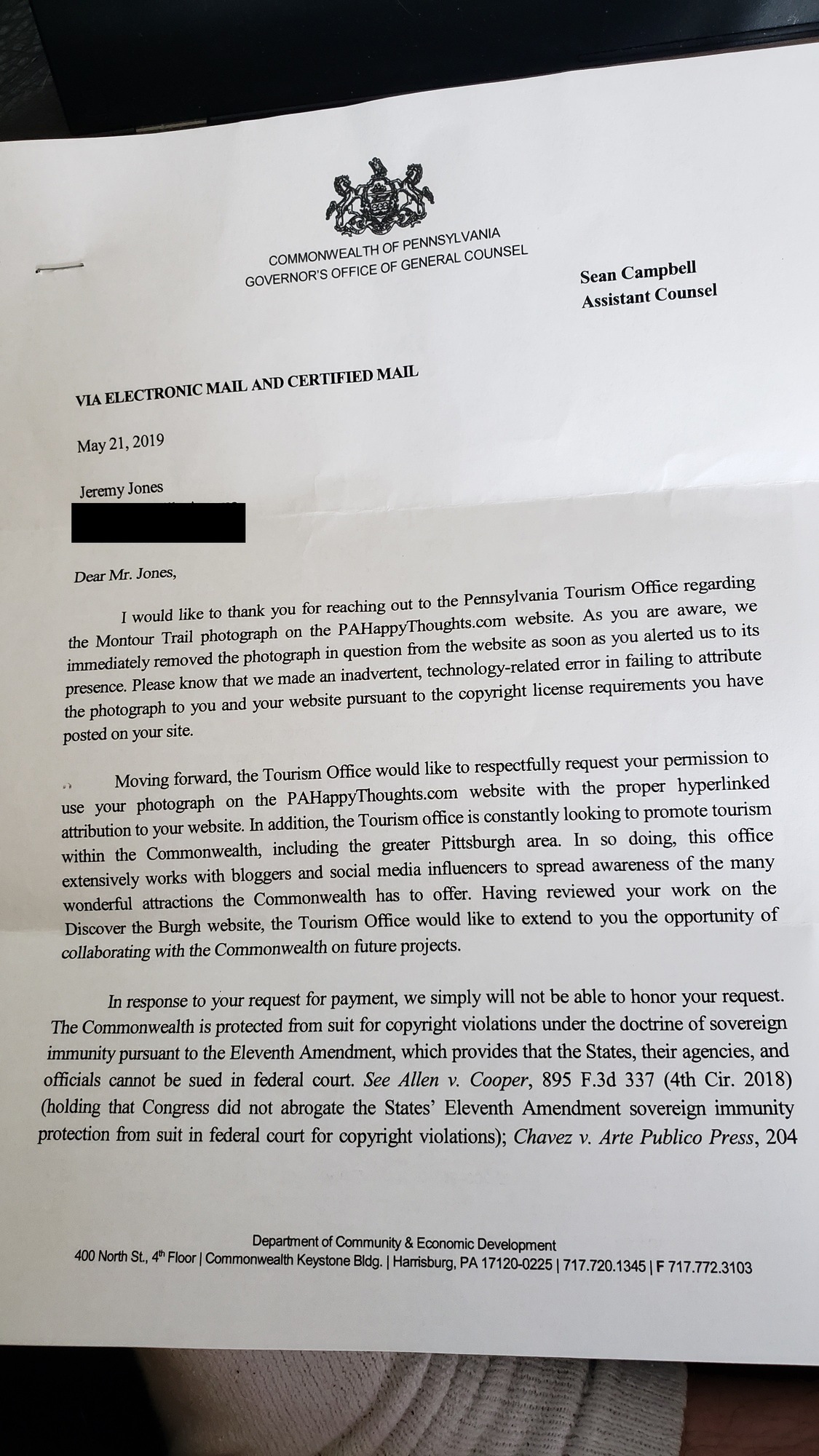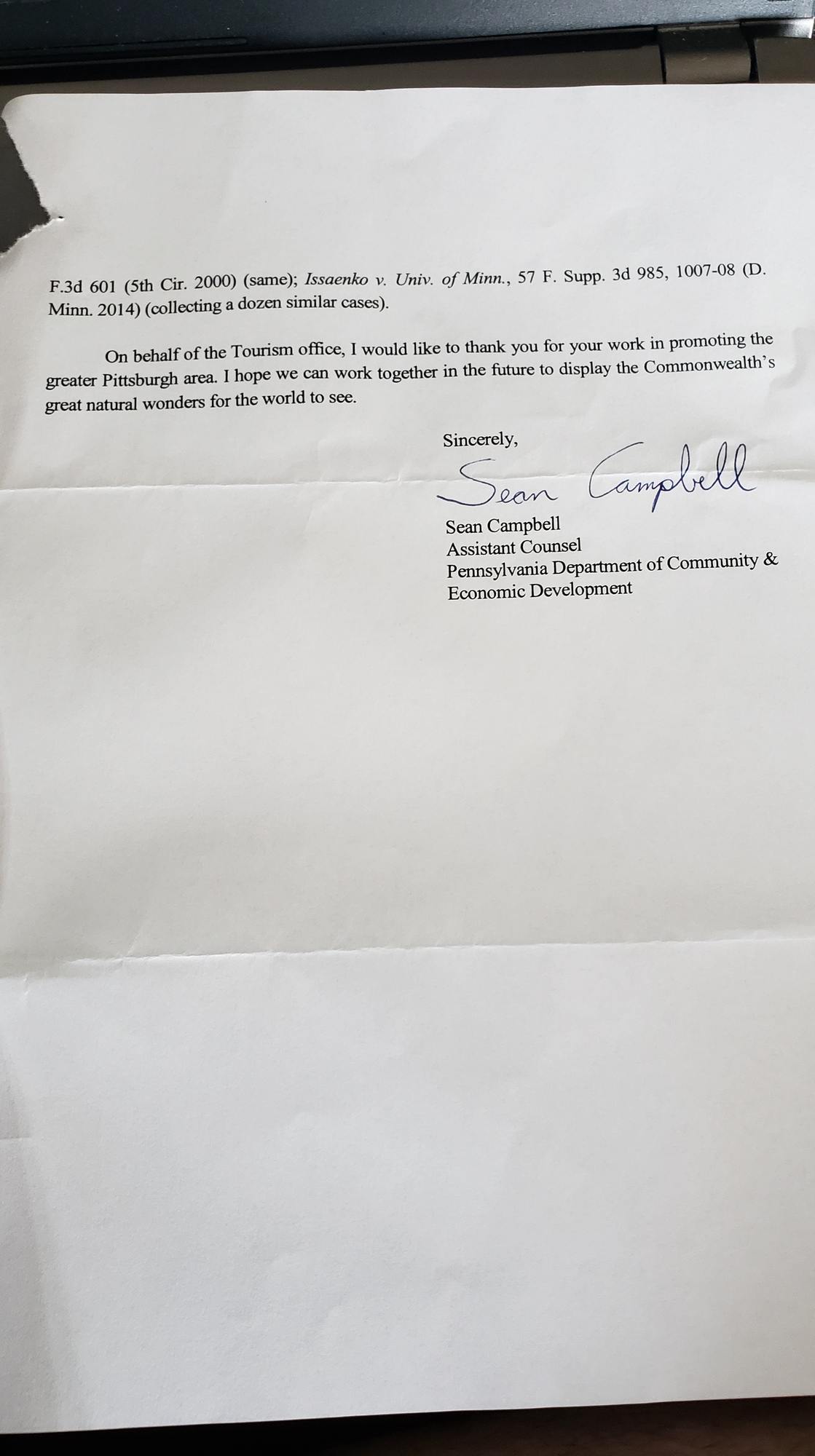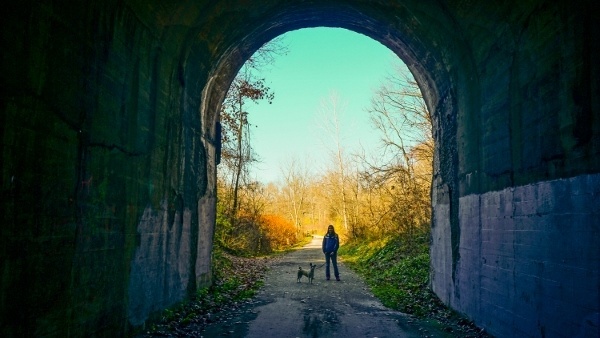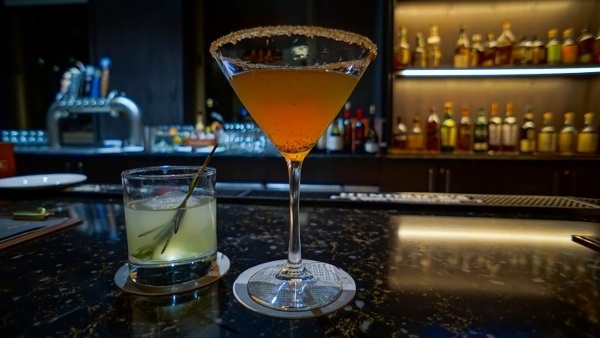Published by Jeremy. Last Updated on June 4, 2019.
Disclaimers: Our site uses demographic data, email opt-ins, display advertising, and affiliate links. Please check out our Terms and Conditions for more information. Listed prices and attraction details may have changed since our visit and initial publication.
It should go without saying that you shouldn’t steal from people. I’m an adult. You’re probably an adult. I don’t steal from you, you don’t steal from me. It is not very hard.
Sadly, in the realm of content and new media, theft, specifically image theft, is rampant.
Fellow “bloggers” have stolen from us. My city’s tourist office has stolen from us. My state’s tourist office has stolen from us. So many people in new media and destination marketing cannot be bothered to learn what copyright infringement is, and real content creators (specifically, real bloggers- without quotes) are the victims.
This has to stop.
As I have no patience for this kind of, please excuse me, bullshit, I’m airing out some grievances today.
Notes: All photos featured in this article have been stolen from us at one point in time with the exception of the response letter sent to us by our state. I am also not a lawyer and this article does not constitute legal advice.
✈️ Book Your Next Trip
- • Planning a trip? Find a flight deal.
- • In need of a room? Check out hotel and apartment prices.
- • Taking a cruise? Find a cruise itinerary for your journey.
- • Don't overlook picking up a rental car or day tours as well!
Is It Copyright Infringement? If You Aren’t Sure, it Probably Is
If your idea of acquiring media is simply going to Google or Instagram, searching for a photo, and embedding it in your site, stop right there. You’re probably stealing.
Even if you make up some sort of attribution like “taken by [name]” or linking to a social media profile, stop right there. You’re probably stealing.
In fact, unless you are getting written permission from the content creator to share their photo via their terms/attributions/citations, no matter what you do, or how ethical you are trying to be, stop right there. You’re probably stealing.
The problem with image use is that we, the content creators (that is, the person who hit the button on the camera), get to decide when, where, and how our copyrights can be used. If you are sourcing a photo on the internet and do not have a clear understanding of its usage rights, stop right there. You’re probably stealing.
And if you’re caught stealing, well, you’re going to get busted. Many content creators (myself included) have their media library uploaded to tracking services, like Copytrack, which can generally find them online within a few hours to days of being published and do all the legal invoicing on our behalf. Once I find out, you’re going to hear from me.
If you are an amateur who made a mistake, I’ll probably email you and ask for a backlink or for you to remove the photo outright.
If you are a “professional” who should know better (especially those who have been rude or stolen from us in the past), I’ll send you a DMCA copyright infringement notice.
If you are a media organization or brand with a hefty operating budget, I’m sending you a bill for double the highest rate I’ve ever sold an image for (which, as of publishing, would be $1,500).
No matter what category you’re in you do not get a free pass to use photos you find on the internet. So if you’re still thinking of using a photo you found randomly on the internet, stop right there. You’re probably stealing.
So in this one, I want to help you out and try and ensure you don’t steal from content creators, the correct process to follow when looking for an image, and fill you in more on what will happen if you do ultimately steal from someone.
How to Tell if an Image Belongs to Someone Else?

Now, I know that most online media is run through 3rd parties- be it through staff writers, PR firms, or other outsourced marketing teams. In virtually every occurrence of someone stealing from us, its always because some untrained team member who has no idea what copyright infringement is did something stupid.
While I can understand that this disconnect accounts for a huge number of thefts all over the internet, it isn’t an excuse, either. As a content creator, it is not my responsibility to train your team to not steal from me. It is yours.
But in any case, here are a few clear signs that may highlight if an image has been posted elsewhere before (not a cumulative list, just from my experience):
- If the file name is a series of numbers, like 61510307_10101948736034380_6141393132622708736_n.jpg, then it is probably from Facebook or Instagram. This is a common notation they use in uploads.
- If it is square, it is probably from Instagram. Very few people format their images as squares for web usage.
- If it is sized to be 600px, 1000px, 1500px, or 2000px, it may have been hosted on a website already. This implies an image has been edited prior to upload.
- If it appears in Google Image Search, check the domains that have hosted it to trace back the original source.
- Just because Google doesn’t find an image that matches doesn’t mean you’re clear, but if it has been published already then it is definitely suspect.
Suffice it to say, while there is no free and clear set of rules to follow to ensure you aren’t stealing, there are a number of things to look out for to see if you and your staff writers most certainly are stealing.
Some Simple Rules for Engaging Content Creators


I feel like I’ve seen just about everything when it comes to brands trying to get content for free. So if it still isn’t clear that you can’t steal from content creators, I decided to create a helpful guide of do’s and don’ts to just frame what is acceptable and what is not.
Please keep in mind, this is from my perspective and is neither settled law nor the gospel for all content creators (apart from bullet #1 at least). While I believe I have a firm grasp on copyright law, I am no attorney.
- As a content creator, I set my copyright terms. Everyone can say when and how their works are used. When in doubt, this bullet trumps all below. The rest is merely my opinion.
- You cannot use an image just because you like it and it illustrates your story. This is not Fair Use and likely violates most photographer’s copyrights unless they universally allow their content to be used for free (this is rare).
- Fair Use is complicated and outlined in more detail here. Many people often consider one aspect of Fair Use to be using a brand’s image to promote the very same brand in an article; however, you cannot be sure who owns the copyright even if it is featured on an official website or social channel. A brand could also have hired a 3rd party photographer to acquire that work, and may not have universal rights for sharing. We’ve seen this in many local museums and theaters who hire 3rd parties for their media images. Whenever we have to use them, we also have to credit the photographer.
- Hashtag use does not constitute written permission to use the photo- both on the social network in question and/or on your own website. You do not own your hashtag and users never agreed to your terms. Don’t agree? Show me my signature that agreed to your T&Cs. You can’t.
- If you are brand or tourist board and host someone on a press trip/media visit/press pass, you do not get photos for free just because you were involved. Bloggers may offer photos as part of a package in exchange for the visit, but others may charge. Usage is not implied. Don’t agree? Show me my signature that says otherwise. You can’t.
- Paying for 3rd party embedding software is just as bad if not worse than stealing outright. You’ll pay a company to port images from Instagram on your site, but won’t pay the image creator? How nice of you. If you can afford to pay for an image service, you can afford to pay the photographers you feature.
- The problem with these programs is that they often download images, upload to 3rd party servers, and remove our control altogether. Instagram’s official embed service may be fair via their T&Cs, but I also have control over the image. If I don’t like its use on a 3rd party site I can just remove the image from my profile and get it to show a broken link your page (its great passive-aggressive fun), but 3rd party uploads remove my control. If you don’t have written permission from me, congrats, you’re stealing! If you use Instagram’s embed service without written permission, you may not be stealing, but you’re definitely a jerk.
- Asking for universal rights to an image via social media and 3rd party terms is sketchy at best. Do you have proof that users actually read your terms before replying #yesCVB? Especially on Instagram when your link is not even clickable to begin with? Likewise, if a user deletes their reply of #yesCVB and then sends an invoice, do you have proof they agreed?
- Generally speaking, sharing a photo on the same social network it is hosted on is fine as long as it is done with the official retweet, Facebook share buttons, etc. provided by the network and has a clickable link to the creator’s profile on the same channel. But there are some caveats:
- You cannot share a Twitter image on Facebook, or Instagram post on Twitter with link to the user on the other network. Keep it Facebook to Facebook, Twitter to Twitter, etc. with proper tags via the official share buttons. No one wants their Twitter account promoted on Facebook when they have an account on Facebook.
- Auto-sharing from one network to another (e.g. Instagram posts automatically share to Twitter or Facebook) can violate copyrights as this can strip the profile link. Not all users have the same handle on each network (we don’t), and a non-clickable handle is not proper attribution. Your laziness in social media marketing may get you sued.
- And to reiterate, just because the above rules are fine for me, doesn’t mean other content creators will agree. You need to ask every single person as we as creators control our copyrights individually- not you.
In reality, the above is not too hard. But if you’re sitting there scratching your head not sure about what to do next, I have to say perhaps PR is not for you.
So what should you do if you want to be absolutely above the line? Well, it is pretty simple and only takes a few steps:
- Contact the content owner first (via email if available) and ask what they require for use. Do not be surprised if money is requested. Do not belittle them for asking for payment. You contacted them first, which means you already value the image.
- If you want to use an image and have no budget, offer a tag on the corresponding social channel where the image will be used (e.g. Facebook to Facebook, Instagram to Instagram, only) and a dofollow backlink to their blog if used on your website. If you can’t provide this at a minimum, don’t even bother asking.
- If you want to use an image without credit, offer money and explicit contract terms (exclusivity, new photo, global rights, etc as well as specific instances for how the image will be used). Photographers will charge anywhere from $50-$1,000+ for their work based on contract terms, but if you want the image without credit virtually everyone will ask for money. If you can’t afford to license photos, see #2.
- There is no alternative. Do #1, and pick your choice between #2 and #3 for the route you want to go.
If you can’t do any of the above, well, I can’t and won’t help you. Perhaps stick to $1 stock photos or free image databases and be like everyone else. (Hey, even I buy stock photos from time to time and I don’t have an eight-figure operating budget like some CVBs who have stolen from me.)
- Note: Whenever you use stock photos, be sure to take a screenshot of the image where it was originally hosted and/or your license purchase. As mentioned previously, the photographer can simply remove the photo from the site and attempt to sue you or demand new terms. This would be a digital equivalent to a signature in our opinion as proof of where you sourced the image. We had this happen to us with a fellow blogger who decided to demand additional terms after offering their image on a free hosting site (not part of that particular site’s terms), and we precisely told them off. There are some shady people out there who will try to retroactively change their terms!
How Much is a Photo Worth Anyway?
Now, all that being said, let’s talk price.
I’ve sold images for as low as $100 and as high as $750. I’ve given images away for dofollow backlinks from reputable, non-commercial entities. My pricing varies based on the terms you want, how the image will be used, and if my brand is reflected in the feature or not.
But one thing I’ve never done is given away an image with no credit, no link, and no fee. You don’t work for free, and neither do I.
When it comes down to it, you may simply see a couple of cocktails in the image above. It’s not a particularly great image, but if you want to use it, you’ve already decided it has value for your purpose.
So how much did it cost me to take it?
While not a great photo, I see a $40 bar bill, at a $200/night+ hotel (that we paid to stay at), with a $20 Uber charge (or $8 parking in my $300/month car), taken on a $700 camera, with a $600 lens, edited on a $1,500 computer with $120/year software, via knowledge acquired during my 10+ years of experience working in travel photography.
To go further, you likely found that image in a Google search. This means you found it hosted on my site, which costs $100/month in server fees and another $300-$500 on advertising and other services just to make sure you see the image you stole in the first place. Not to mention, the 10+ years of experience I have in SEO and marketing to tie it all together.
So I have to ask- Where did you earn the right of using that image without compensation? Or even worse, a courtesy email to ask permission, my rates, and my terms?
If you can’t pay photographers for their work and are too lazy to reach out to ask for permission via proper credit, I only have one final thought for you- go to the bar and drink that damn cocktail yourself.
It was delicious and one of the best parts of my job. Dealing with you stealing the image later, however, is the worst.
My four-figure invoice to cover the license, copyright damages, and my time will be waiting in your inbox, and I expect to be paid. So, perhaps next time, maybe just ask me what my terms for usage are?
It really is not hard.
Have an existing blog that is in need of an upgrade? Check out the following services we personally use!
- BigScoots - Premium managed hosting with plans as low as $35/month.
- GeneratePress - A customizable theme designed for site speed.
- AdInserter Pro - A widget logic plugin that is quite powerful.
- WP Rocket - An image and caching optimization plug-in.
- Mailerlite - Cost effective newsletter service.
- Keysearch - Keyword research tool for SEO.
- Pretty Links Pro - A great link cloaking tool to clean up affiliate links.
About Jeremy

About the Author: Jeremy is a full-time travel writer based in Pittsburgh and primary author of this site. He has been to 70+ countries on five continents and seeks out new food, adventure activities, and off-the-beaten-path experiences wherever he travels.

